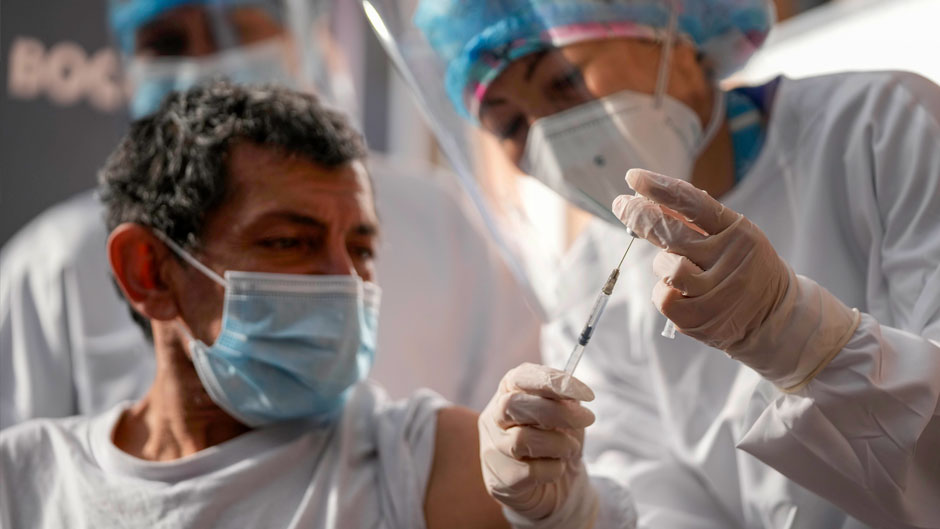A new white paper from the Inter-American Health Task Force offers recommendations to support regional preparedness, monitoring, and response for COVID-19 and future health emergencies in the Western Hemisphere as countries experience a surge in coronavirus infection rates because of the Delta variant. In addition, slow vaccine distribution is affecting Latin America and the Caribbean and causing delays in social and economic recovery.
The task force is an initiative of the Inter-American Dialogue, a United States-based think tank focused on policy analysis, exchange, and communication on issues impacting the Western Hemisphere. It was co-chaired by Julio Frenk, president of the University of Miami; Helene Gayle, president and CEO of The Chicago Community Trust; and directed by Beatriz Londoño, former minister of health of Colombia.
The white paper, “Deepening Cooperation and Coordination on Health Policy in the Americas: A New Approach to Health Emergencies,” was published in July following several meetings and in-depth consultation with the task force over a three-month period.
“It is clear that the only way to confront future pandemics is by working together—global challenges require global solutions,” Frenk said in response to the task force’s work. “We need to capitalize on what is undoubtedly a global public health moment and introduce not only short-term, marginal improvements but fundamental structural changes into the global health system so it can better protect everyone in our deeply interdependent planet.”
Ensuring equal access to COVID-19 health services and products—most urgently, vaccines—would maximize social and economic recovery and bring the pandemic under control throughout Latin America and the Caribbean, according to the task force. As of July 23, Latin America and the Caribbean—a region with only 8 percent of the world’s population—have recorded more than 1.3 million coronavirus deaths (almost 30 percent of the world’s total). About 89 percent of the deaths occurred in five countries: Brazil, Mexico, Colombia, Argentina, and Peru.
“The pandemic has taken a huge toll on Latin America’s already weak and strained health systems. Countries must now also look beyond the immediate challenges of COVID-19 and strive to mitigate the longer-term impacts,” said task force member Felicia Marie Knaul, a global health economist and director of the University of Miami Institute for Advanced Study of the Americas and the Observatory for the Containment of COVID-19 in Latin America. “The recommendations of the task force are designed to support national and sub-national governments as well as non-governmental actors to avoid a tsunami of noncommunicable and chronic disease,” she added.
Donna Shalala, professor emerita, former president of the University, and former U.S. Secretary of Health and Human Services, also served on the task force.
Strengthening and investing in health systems is a national and global priority for economic stability and security, the task force concluded.
In its recommendations, the task force highlighted the need to improve health policy in support of the regional response to COVID-19, aid in post-pandemic recovery throughout the hemisphere, and establish the foundation for a proactive, coordinated response to future health emergencies. The five areas identified for work going forward are:
- Promoting leadership and better governance in regional health emergencies
- Increasing access to and sharing of high-quality data
- Strengthening regional health security by investing in national preparedness
- Ensuring equitable access to COVID-19 health services and products, in particular vaccines
- Controlling and managing the spread of misinformation, disinformation, and conspiracy theories
The task force made 25 recommendations, prioritizing seven on equitable access in the short term, followed by five on the exchange of high-quality data, five on investing in national preparedness, six on leadership and better governance, and two recommendations on controlling and managing the spread of misinformation, disinformation, and conspiracy theories.

